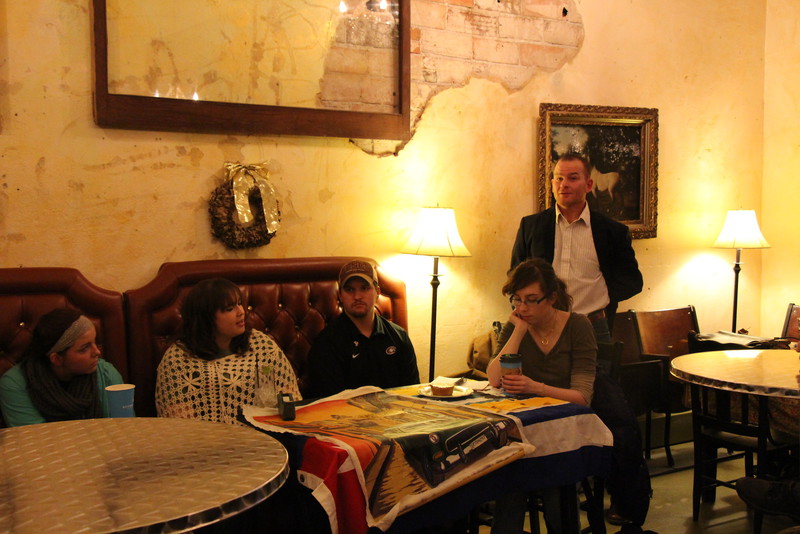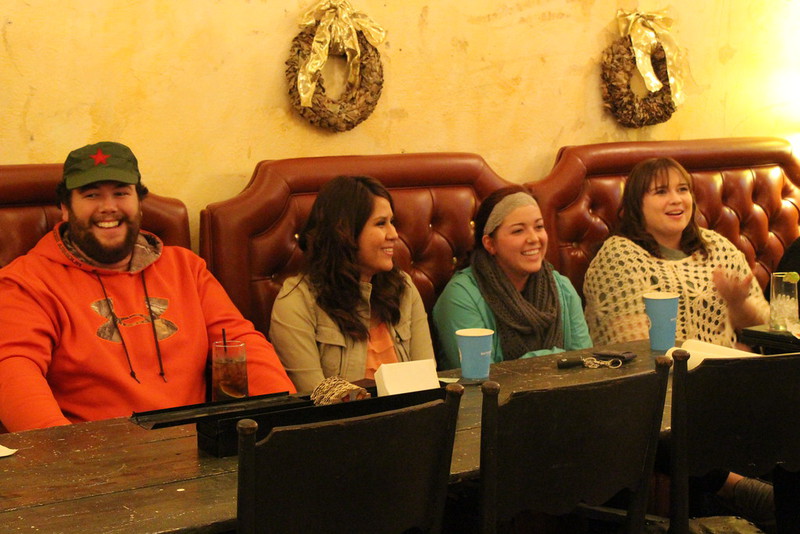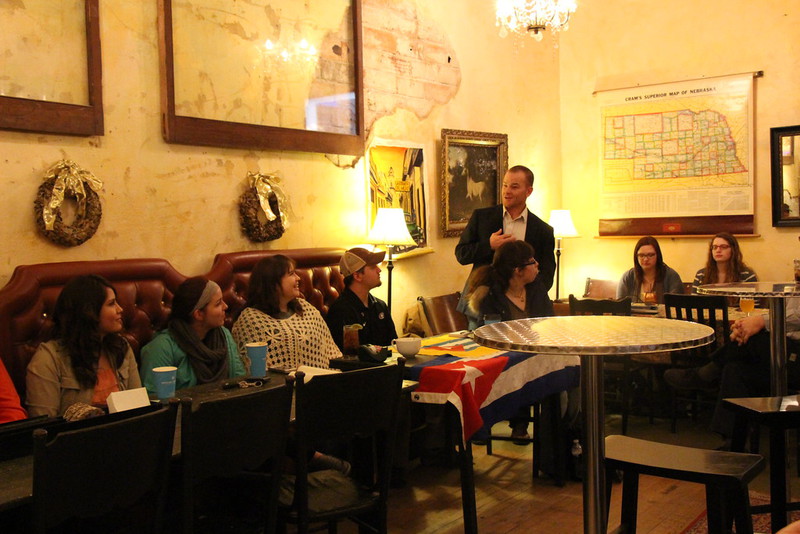Socialism in Cuba discussed

Seven Chadron State College students and two faculty members, Dr. T. Smith and Dr. Deane Tucker, gathered at the Bean Broker Thursday evening to discuss their study abroad trip to Cuba. The trip, in mid-December, was the first trip Nebraska college students have made to Cuba, according to Smith and Tucker.
During a panel discussion, students in the course taught by Smith and Tucker that culminated in the Cuba experience, discussed a variety of social and humanitarian issues including income equality, education, crime and poverty.
Each student composed a scholarly question about a topic during the capstone course. During the stay in Cuba, students had a chance to make observations and gather firsthand information related to their forums.
Smith, an associate professor in the Social and Communication Arts department, and Tucker, a professor in the English and Humanities department, led the discussion.
Smith asked the panel members if they think socialism is working in Cuba, the last really truly socialist country in the Western Hemisphere. The average Cuban makes about $20 per month since all basic needs are met by the government.
Kirby Krogman of White River, South Dakota, said he felt that the entrepreneurial spirit was squashed based on conversations with the owner and operator of a bed-and-breakfast where the group stayed for several days.
“For example, if Irene starts getting ahead of others, the government will come in and do something, make a regulation that will reduce her income,” Krogman said.
The notion of a level economic field is in stark contrast to the U.S. where citizens are conditioned to be competitive, according to Broc Anderson of Alliance, Nebraska.
Dillon Spies of Grand Island, Nebraska, described the Cuban people he met as being in a state of limbo.
“They receive government benefits like free health care and education. But if you become a doctor, you make just as much as everybody else. The system keeps everyone at the same level. They seemed to lack the will or drive to improve themselves,” Spies said.
Katrina Hurley of North Bend, Nebraska, agreed with Spies about the nebulous mindset of the people she met.
In response to a question by Tucker regarding poverty, Hurley said she viewed the Cubans’ mental, rather than financial, state as impoverished.
“They acted like, ‘I can't go anywhere. I’m stuck.’ You can tell they want to get more, they want capitalism, they want to get ahead,” Hurley said.
Tucker said he learned during the trip that some Cuban citizens do actually travel to the U.S. and work for three month stints and then return.
Several members of the panel said they came to the conclusion that a lack of crime is one positive side effect of a socialist economy since one class of society doesn’t have better belongings than another, removing the incentive to steal.
Tricia Mitnik of McCook, Nebraska, said fear of the police is also a factor in the lack of crime. Neyva Flores of Arthur, Nebraska, found the absence of gangs in Havana interesting.
A number of other topics related to students’ scholarly question were discussed through the evening with about 20 people who attended the event. Students also displayed flags, coins, hats and art they brought home from the trip.
The next Cuba Libre display will be included in the Essential Studies Program exhibit during the Information Fair Feb. 12 in the Student Center Ballroom.
—Tena L. Cook, Marketing Coordinator
Category: Campus News


